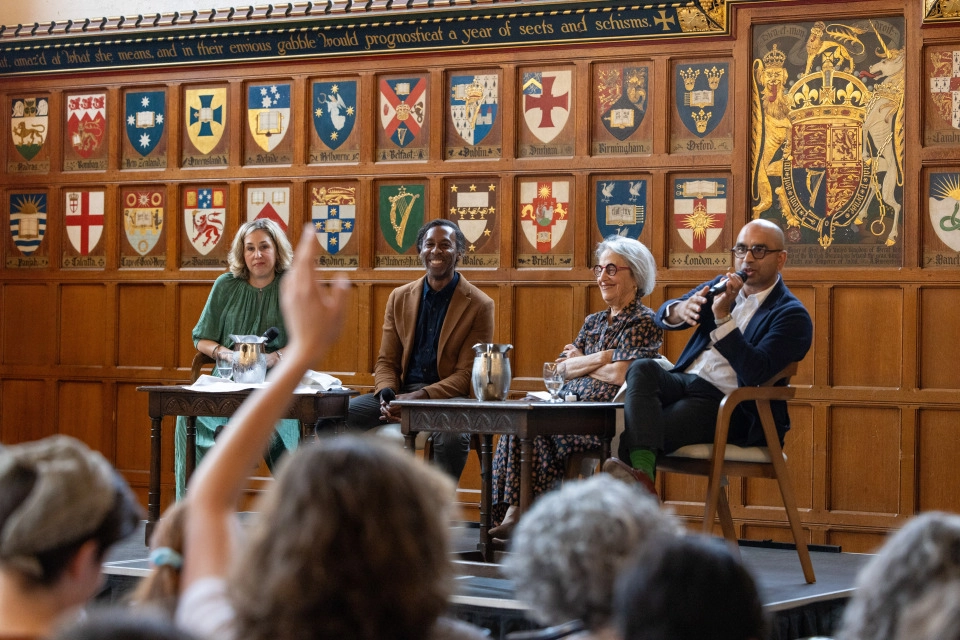Geopolitical events over the past 12 months have deepened divisions and heightened tensions in society. As is often the case in such times, universities are among the institutions in which this has been especially visible – and the University of Toronto has been no exception.
In fact, the problem of polarization in society has been building for some time, due to increasing levels of distrust and intolerance – along with the isolating effects of social media and a once-in-a-century pandemic. In the midst of it, our capacity to engage in dialogue across differences, and our interpersonal and social skills in general, have been impaired. For democracies the challenge is nothing less than existential.
We will continue responding to immediate concerns, but we also have work to do in the longer term. Ultimately, we need to rebuild a culture of civil discourse, in which mutual understanding is possible and even the most contentious of issues can be discussed rationally and peacefully.
This goes right to the heart of our academic mission – the advancement of knowledge and truth, and the education of responsible citizens. We must welcome free and open debate, and encourage people both to challenge the status quo and be open to being challenged on their own views. In all of this we must remain staunchly committed to freedom of speech as well as fostering mutual respect. We simply can’t have one without the other.
This balance is reflected in U of T’s Statement on Freedom of Speech, a policy that has served us well since it was approved by the Governing Council more than three decades ago. “[A]ll members of the university must have as a prerequisite freedom of speech and expression, which means the right to examine, question, investigate, speculate, and comment on any issue without reference to prescribed doctrine, as well as the right to criticize the university and society at large. The purpose of the university also depends upon an environment of tolerance and mutual respect. Every member should be able to work, live, teach and learn in a university free from discrimination and harassment.”
To that end, last January, U of T appointed Randy Boyagoda, professor of English, vice-dean undergraduate of the Faculty of Arts and Science, and a novelist and former president of PEN Canada, as provostial advisor on civil discourse – the first such position at a Canadian university. During the current academic year, he is leading a working group that will consult with members of the university community, collaborate with tri-campus leaders in developing programming, and create a plan to promote the capacities and sensibilities needed for civil discourse.
Restoring these practices is a shared responsibility, requiring a personal commitment from each of us – faculty, staff, librarians, students and alumni. I encourage everyone to take part in this crucial, collective effort.







No Responses to “ Toward a More Civil Discourse ”
As always, University of Toronto Magazine provides insightful coverage on issues of direct relevance to the university and its role in the community and the world.
Nevertheless, and notwithstanding President Gertler’s column, I had hoped the magazine would provide more comprehensive and insightful coverage of one of the most important issues affecting the world and the university over the past year: the tragedy of October 7, the subsequent genocide in Gaza, and the role of the university on this issue – particularly the encampment on the front campus and the U of T administration’s response to the protest.
The right to freedom of speech and peaceful protest is an integral part of the values and experience students are intended to learn at university. I visited the encampment and was impressed by the organization and tolerance displayed by the students. I am sure there were unfortunate incidents, as it is impossible to ensure that everyone abides by the rules, but protecting the right of freedom of speech should not be sacrificed because of the actions of the few.
I realize all universities are struggling to find a way to forward. I had expected U of T to address this issue openly with its alumni. Avoiding this discussion is not a solution. I hope you will support a deeper and broader discussion of freedom of speech and protest and ethical investing. The university could use some self-reflection and criticism of its actions.
U of T's President's Office responds:
The author raises a number of important points. We would like to note that the university and the president directly addressed the protests at many times and in many places, including: in 25 official statements or updates to the university community; in a press conference and in over 200 media engagements (including an interview on CBC's Metro Morning); and in three public briefings to the university’s Governing Council that were livestreamed.
Rather than avoiding the topic, the university sought to engage with it honestly and in good faith.